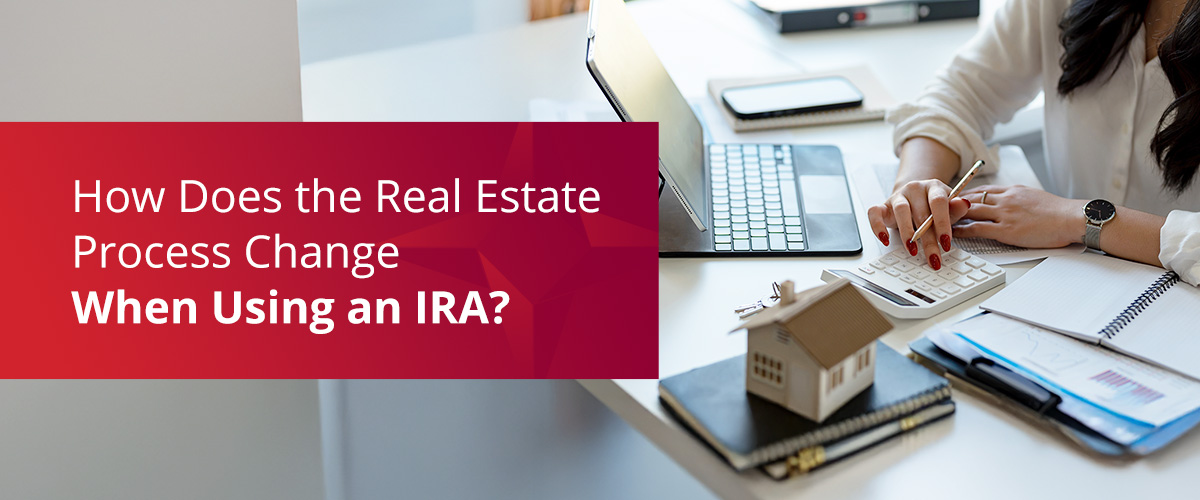
Investing in real estate through a self-directed IRA (SDIRA), also known as a real estate IRA, has a few differences and rules compared to investing with your pocket money. It’s a great way to build your real estate portfolio and take advantage of the profits, which are tax-deferred. Just keep the following in mind.
How Does Real Estate in an IRA Work?
Investing in real estate can help you grow your wealth over time. However, with an SDIRA, you do not get to pocket the earnings right away. You can only access the amount in your retirement. It’s the IRA that’s involved in the deal, not the account holder. You and your IRA are considered different entities, and your IRA owns the property, not you as an individual.
Your IRA custodian signs the documents on behalf of the self-directed IRA real estate. The property title will look like “[Name of the Custodian] FBO [Your Name] IRA,” where FBO stands for “for the benefit of.” The custodian signs the documents on your behalf. These documents can be submitted for signature via fax, email, snail mail, or overnight service. You should provide instructions on how the docs should be returned.
Since the self-directed IRA owns the property, the IRA must pay for everything pertaining to the property. The IRA provides the earnest money or down payment and pays for any inspections, repairs, property taxes, property management company fees, and more. The IRA also receives any money pertaining to the property, like rent and proceeds from a sale. It’s a great way to build a retirement nest egg and potentially earn more money in a shorter amount of time.
IRS Rules for Real Estate IRAs
Investing in a real estate IRA comes with a set of rules from the Internal Revenue Service (IRS):
- You must work with a custodian who offers SDIRAs for real estate: Your custodian will hold and manage the funds of your IRA. You also cannot perform a self-dealing transaction, where you purchase a property through your spouse, parents, children, or other disqualified persons.
- You cannot purchase properties for personal use: You cannot buy a house for your family, but you can purchase rental properties. Prohibited transactions can cost you 15% of the transaction amount as a penalty. If you don’t correct the prohibited transaction within the current tax year, the penalty increases to 100% of the transaction amount.
- Any income incurred by the property goes back to the account: This revenue may be considered unrelated business taxable income (UBTI), unless you purchase the property outright. The IRA will be liable for the tax, not you.
Real estate IRAs can get the same tax-deferred or tax-free growth benefits as traditional or Roth IRAs. However, you can’t take advantage of deductions from owning real estate. You also cannot get the benefits of depreciation.
How to Buy Real Estate With an IRA
You must open an SDIRA and have a custodian manage this account. Once you have a property to purchase, your custodian will make the transaction on your behalf.
Ensure your IRA has sufficient funding since it must pay for all property transactions after purchase. Consider the contribution limits when identifying whether your IRA can sustain a property. You can purchase the property outright or get a non-recourse loan through your IRA.
How to Sell Real Estate Properties in Your IRA
Similar to selling properties outside an IRA, you should identify a price for your property and find the right buyer. Your custodian will sell the property on your behalf. The earnings will go back into your IRA.
Frequently Asked Questions
These answers to commonly asked questions can help you further understand real estate IRAs.

Can I Move My Rental Property into an IRA?
The IRS prohibits selling a property you already own to your real estate IRA. You must find other rental properties if you want to invest through your IRA.
Can I Build a House With a Self-Directed IRA?
You can only purchase investments with your real estate IRA, so you cannot use it to build a house, even if you intend to use it as a rental property.
How Is an IRA Handled in an Estate?
Your beneficiaries can inherit your IRA after your death. Your spouse may choose to maintain the account as an inherited account or roll it over into their own IRA. Other beneficiaries need to transfer the funds to a new IRA.
Invest in Real Estate With Accuplan
Accuplan can help you easily start investing in real estate through a self-directed IRA. You won’t need to risk penalties and disqualifications with all of the rules you must follow. You can count on our expertise and personalized solutions to get you a successful and streamlined investing experience. As a company working for over 25 years and with over $2 billion of assets under our management, we’ve built the best real estate IRA program you can count on. Schedule a free one-on-one consultation today!
Disclaimer: Our information shouldn’t be relied upon for investment advice but simply for information and educational purposes only. It is not intended to provide, nor should it be relied upon for accounting, legal, tax or investment advice.
